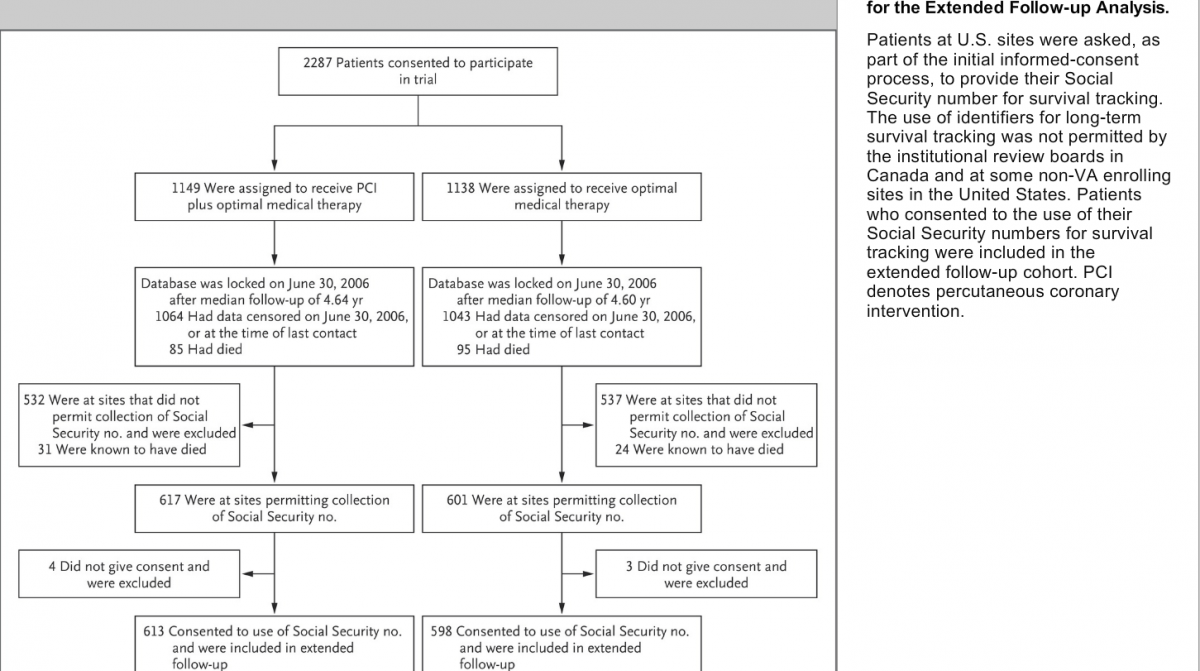In the COURAGE trial, the authors compared an initial management strategy of optimal medical therapy alone with optimal medical therapy plus PCI among patients with stable ischemic heart disease and found no significant difference between the treatment groups with respect to the composite primary end point of death from any cause or nonfatal myocardial infarction or with respect to any of the other cardiac end points (including death from any cause or hospitalization for acute coronary syndrome) during a median follow-up period of 4.6 years.
In the current study, extended survival analysis failed to show a long-term survival benefit from initial PCI among the patients with stable ischemic heart disease who were followed for up to 15 years after initial enrollment in the COURAGE trial.
Clinical outcomes differ significantly according to the treatment choice, as has been demonstrated by currently available data from the COURAGE, FREEDOM and SYNTAX trials, and emphasize the fact that CABG is superior in the long-term treatment of revascularization in some patients with two-vessel disease and most patients with three-vessels or Left Main CAD.Citation

These data are competable with other published articles that have failed to show a survival benefit associated with PCI interventions for stable coronary artery disease.
From: Effect of PCI on Long-Term Survival in Patients with Stable Ischemic Heart Disease. N Engl J Med 2015; 373:1937-1946

